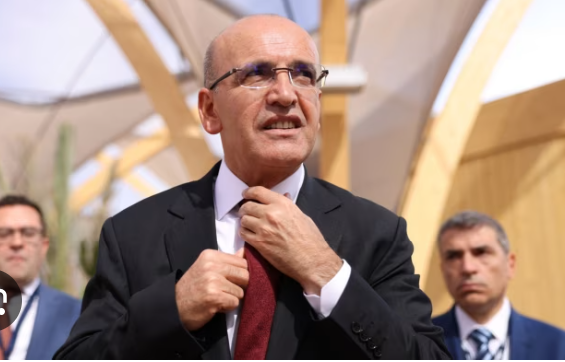A noticeable slowdown in inflation has begun in many areas and it will continue in 2025, Treasury and Finance Minister Mehmet Şimşek said on Monday, adding that the “necessary ground” was established to permanently lower inflation.
Speaking during discussions of the Finance and Trade Ministries 2025 budgets in front of Parliament, Şimşek outlined key developments regarding the macroeconomic picture and the medium-term program, recalling the ground covered since the second half of last year.
“A noticeable slowdown in inflation has begun in many areas, from food to durable goods, from education to transportation. It will continue in 2025,” Şimşek said.
The annual inflation rate dropped to 47.09% in November, down from 48.6% in October and further away from a peak of 75.45% in May, official data showed earlier this month.
The minister reiterated that inflation regressed by 28 points compared to May, noting however that inflation “remains high in the services sector,” which he said has backward-looking pricing and responds later to disinflationary policies.
Turkish central bank has hiked its benchmark policy rate by 4,150 basis points since June last year as part of a shift to more conventional economic policies in a bid to rein in elevated prices.
Since March it has kept the one-week repo rate unchanged at 50% and it is due to convene for its next monetary policy meeting next week as markets continue to weigh potential rate cuts.
“We have created the necessary groundwork to permanently reduce inflation, the framework has been shaped. Inflation will continue to fall in 2025 due to four main factors,” Şimşek said.
He listed these factors as the lagged effect of monetary policy, that would become more apparent; curbing the budget deficit; determining some managed and directed prices in line with the inflation target within the framework of budget opportunities, and accelerating projects and reforms that will increase supply in basic areas such as food, housing and energy.
Starting his speech, Şimşek noted there have been “significant gains” thanks to the medium-term program the government has been implementing since the second half of 2023. He said that they have primarily strengthened the macro-financial stability and ensured rebalancing in the economy.
He also mentioned that the current deficit to national income ratio has declined from 5.5% to below 1%, flagging it as a notable development.
The minister also emphasized the rise in reserves since last year, highlighting that by increasing reserves, they have eliminated the low reserves as a source of concern and that the claims that this was “achieved through carry trade” are not true.
More than two-thirds of the increase is due to long-term, reasonably priced external resources and portfolio preferences in Türkiye, according to Şimşek.
dailysabah.com
